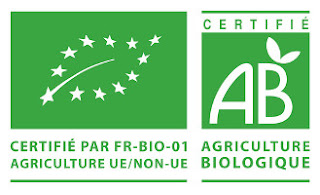A recent study assesses the impact of global warming on vineyards around the world and the scenario is truly chilling, but winegrowers are preparing to adapt.
According to a team of American researchers, Chileans and Chinese who have just published in the scientific journal "Proceedings of the National Academy of Sciences". Their article titled " Climate change, wine, and conservation "Predicts a sort of apocalypse in viticulture. According to their index, which assesses the "aptitude" of the vine to develop, until 86 % of current wine-growing regions would simply not be suitable for wine-growing in around 40 years due to global warming.
Attention, I am not saying that scientists do not agree on the existence of global warming that some enlightened people are determined not to accept. In South Africa, we find that the winegrowers cultivate the vine at an increasingly high altitude. In Europe, we note that the maturity of the grapes is increasingly precocious since only 30 years, the harvest was brought forward by two weeks. The chaptalization has become anecdotal - adding sugar to increase alcohol levels - and winegrowers are increasingly seeking to lower this alcohol level.
The major flaw in this study is that a predominant parameter in viticulture has been forgotten when it enters into the notion of terroir : the man. The history of the vine has constantly evolved since its inception, five thousand years ago. The vine has always undergone profound changes. In the 18th century, the main French vineyard was Ile-de-France. The Merlot grape, widespread in Gironde has been made fashionable thanks to the taste of American consumers in the years 70. Today's wine-growing areas can survive thanks to the ability of humans to adapt through multiple strategies. Stripping, which consists of removing leaves, was systematic to expose the grapes to the sun. Today, it is done in a much more measured way. The orientation and density of the rows of vines can also play an important role in adapting viticulture.
Ideas for delaying the effect of global warming
Especially since we still know little about this plant that we have cultivated for so long. It has long been known that roots control the vigor of vegetation. We have discovered in recent years that leaves also send "signals". If irrigation is prohibited in France for appellations of controlled origin - AOC -, Languedoc is still considering it for the future. Irrigation can save the French vineyard, but can also have consequences on water resources.
Apart, some techniques of partial dealcoholization of wine used for several years, another hypothesis would be to use slowly maturing grape varieties to avoid harvesting during a hot period. The Institute of Vine and Wine Sciences has decided to plant around fifty different grape varieties from around the world to observe the evolution of various characteristics over the next ten years to improve techniques on the vine.: vigor, flowering date, biochemical composition, organoleptic qualities, and so on.
As for the hypothesis of seeing the vines extend further north, it is possible according to Serge Delrot “there is already a very small vineyard in Sweden and, due to warming, one can very well imagine the adaptation of champagne in the south of England, which has limestone slopes ”.
What I can do
Consumers can also play an important role in the preservation of these endangered vineyards by favoring wines from vineyards that have adopted more environmentally friendly practices..
COP21 is coming up soon as I write these few words and it seems important to me to commit to the climate. At this rate, we are going to upset the world around us and what if ecology does not necessarily speak to you, I think wine speaks to you since you are reading this article. In less than a generation we risk losing what we know about wine and at the same time a whole part of our culture.
Because there are fights that deserve to put our ego aside, I invite you to sign the petition of the Nicolas Hulot Foundation to try to save what can still be saved and to make our world last for generations to come by following the link: Sign the petition.
Do not hesitate to let me know your impressions of your experience in the comments. You can also follow your wine blog with Instagram.




